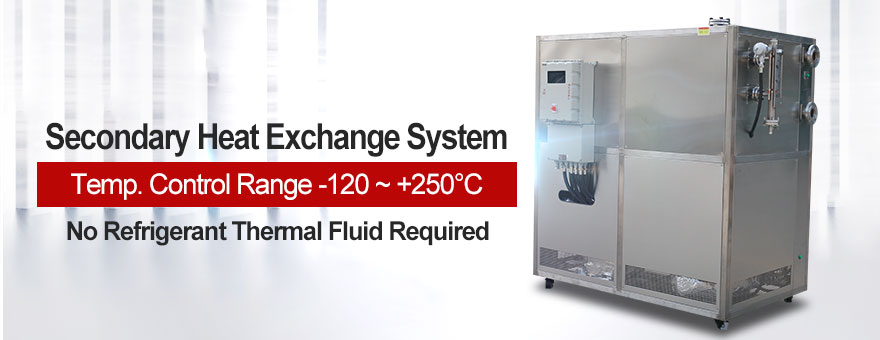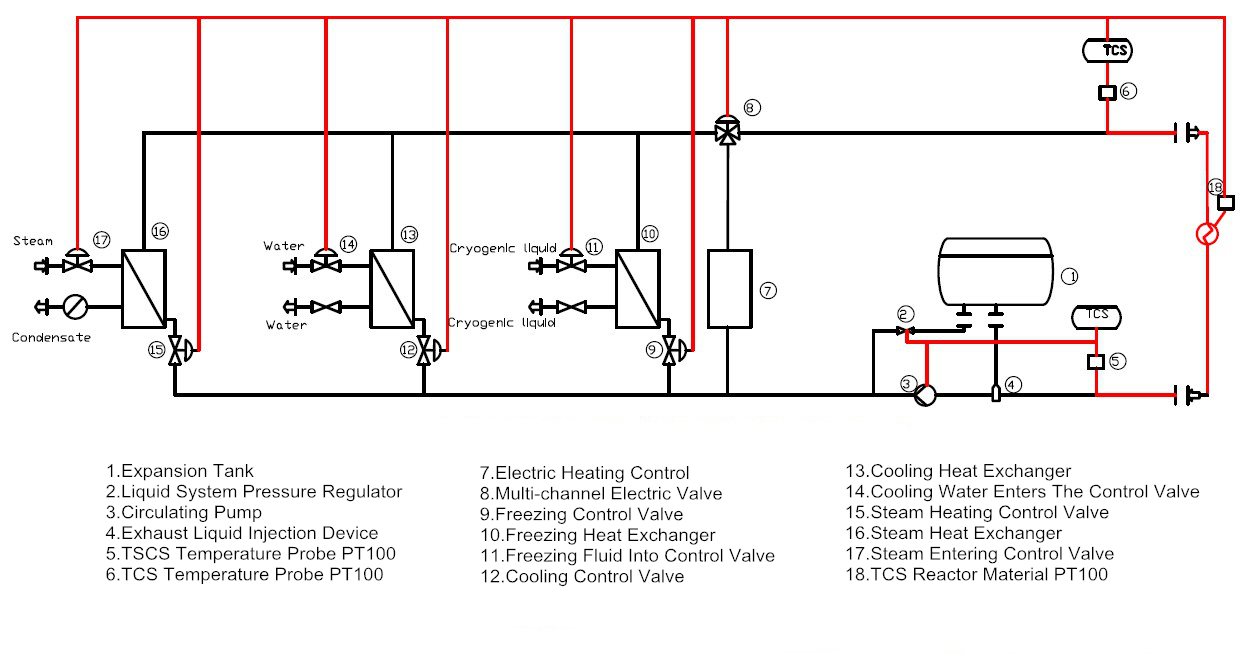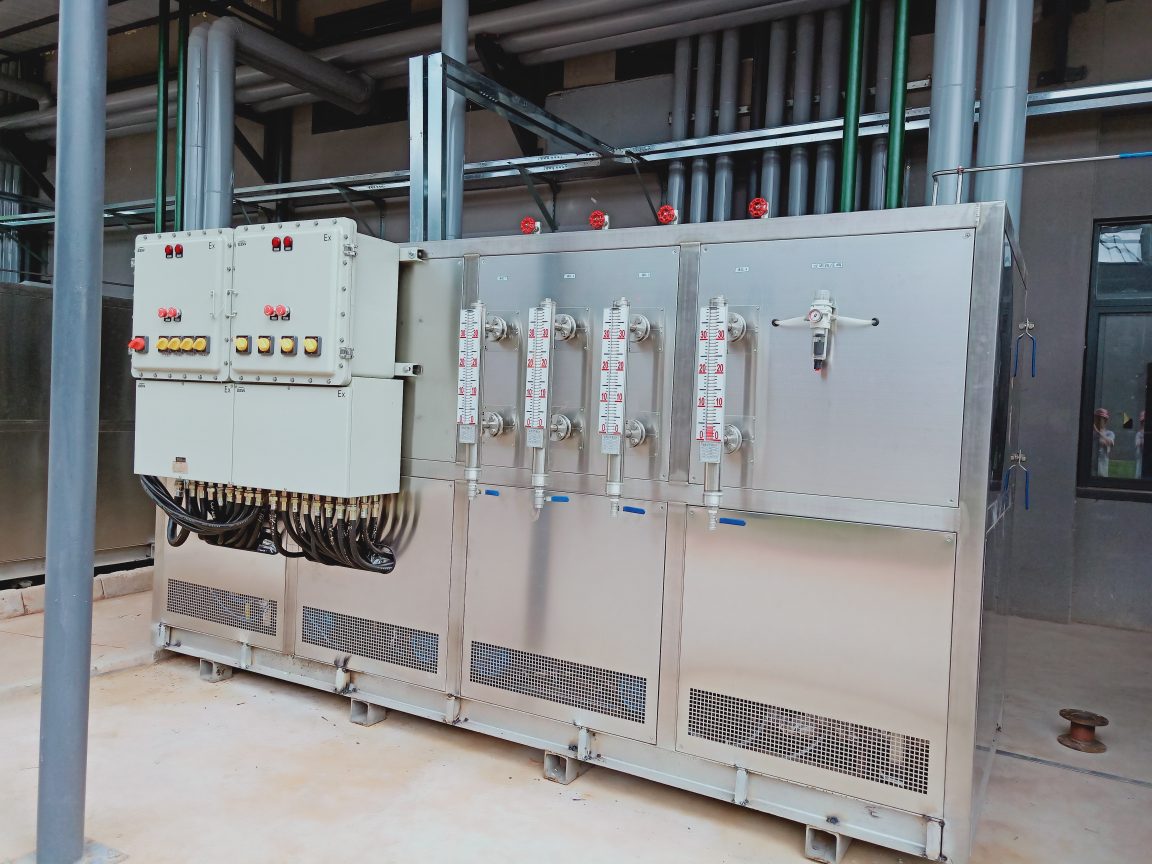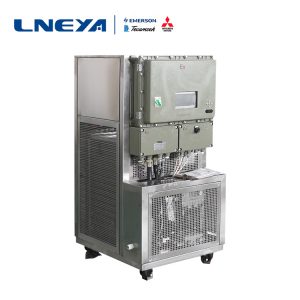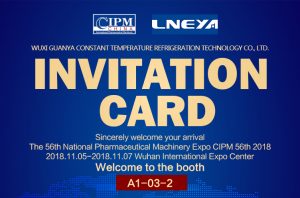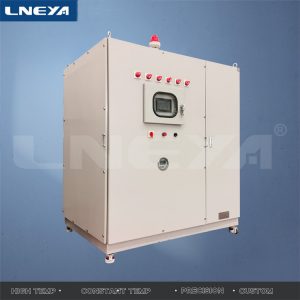Reactor Thermal Control Unit and Solutions for Chemicals
Temperature control is a process in which the temperature of a substance or a change in temperature is measured or otherwise detected, and the transfer of thermal energy into or out of the space or substance is adjusted to achieve the desired temperature.
When dealing with pharmaceutical production, maintaining accurate temperature control is critical. Starting with research throughout production, precise temperature control is required at every stage of the process. We fully understand the importance of process cooling, and simple temperature fluctuations (positive and negative) can ruin research or production.
Our TCU can meet all your heating, cooling and temperature control needs for your chemical or pharmaceutical reactor. The LNEYA-TCU temperature control system can utilize existing thermal energy (such as steam, cooling water and ultra-low temperature liquids-the “primary system”) infrastructure integration to achieve dynamic temperature control of the equipment temperature in a single fluid system or a secondary circuit. This only completes the flow of a heat transfer liquid into the jacket of the reaction vessel (rather than directly into the steam, cooling water or cryogenic liquid), and the temperature of the entire reaction process is controlled by calculation.
From -120°C for cryogenic pharmaceutical applications to 300°C for chemical applications, the maximum temperature can be set according to the supplier’s heating or cooling source. The maximum temperature range can be set using a glycol water formula. Through three-point sampling (material temperature point, outlet temperature of temperature control system, inlet temperature of temperature control system), and our own model-free self-building algorithm and general anti-lag cascade algorithm, the problem of large drug delays is solved. Chemical temperature control . Our SR series and ZLF series are completely suitable for low temperature reaction, synthesis, separation process, pilot plant, reactor system, autoclave, combinatorial chemistry, etc.
This will increase product profitability and reactor utilization, and reduce energy and plant operating costs. Our TCU is fully automated and easy to operate. The temperature control accuracy of the product is ± 0.5 ° C, and the cooling power can be provided from 0.5 kW to 1200 kW.
The picture below shows the TCU thermal control unit customized by domestic customers
Related recommendations
-
How To Choose The Screw Type Water-Cooled Chiller
1862Compared with the similar chillers, the screw type water-cooled chiller has many advantages. We as one of the top chiller manufacturers share you more. 1. The temperature of the heat conducting liquid can be adjusted to any temperature you want, a...
View details -
Influence of Freezing Oil on New Energy Vehicle Drive Motor Test System
1889The hazard of the refrigerating oil in the new energy vehicle drive motor test system increases the condensation temperature and the condensing pressure; the condenser heat transfer deteriorates. Because the oil film produced by the oil entering t...
View details -
2018 CIPM China | You have an invitation to the exhibition from LNEYA
1845The 56th (Fall 2018) National Pharmaceutical Machinery and China International Pharmaceutical Machinery Expo will be held from November 5th to November 7th, 2018 at Wuhan International Expo Center. As one of the professional communication platfor...
View details -
Where can industrial heating circulators be useful?
1790The industrial heating circulator can provide a circulation device of cold source and heat source, and has a wide working range. It is used in the pharmaceutical, chemical, biological and other industries to provide heat and cold sources for reac...
View details
 LNEYA Industrial Chillers Manufacturer Supplier
LNEYA Industrial Chillers Manufacturer Supplier









